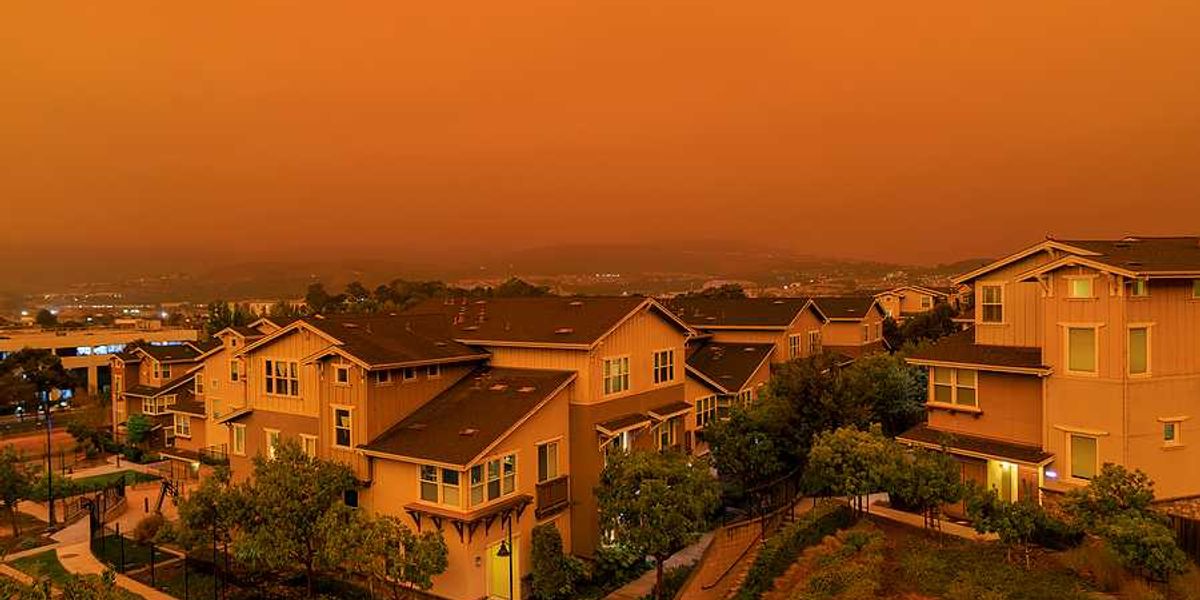
Green screen: Hollywood's big misses on the environment
A handful of comically bad eco-films.
Hollywood's attempts to green its screens have seen some pretty wildly mixed results.
Let's set aside the clear triumphs, like Erin Brockovich and A Civil Action. Some of cinema's environmental screen efforts have been...eclectic? Here are a few proposed awards for movie missteps.
The Oscar for eco-trend-spotting goes to...
Godzilla Versus the Smog Monster
It almost goes without saying that this film is in a league of its own. Believed to be the 21st movie in the Godzilla franchise, Smog Monster shows us a kinder, gentler Godzilla—one that protects Tokyo rather than stomp the city to bits.
Anyway, Hedorah is a tiny creature that rides a meteorite to Earth, where it grows to enormous size by gorging itself on Tokyo's postwar recovery's smoke and sludge—spitting oil, blowing smog and slinging goo all over the city. A cadre of 1971 hippies—the heart of Japan's nascent environment movement—summon Godzilla, setting up an epic showdown between our gallant reptile and his (her?) gooey, flying foe. (There's a healthy, 60 year battle over Godzilla's gender still a-blazin' among the Big Reptile's followers).
Yes, this movie is every last bit as bad as it sounds. Run, don't walk, as fast as you can, away from this one.
Released in dubbed-in English in 1972, Smog Monster deftly preyed on the first big wave of the global environmental movement.
The Oscar for sanctimony goes to…..
Waterworld
Who could ask for more than the dreamy Kevin Costner, with gills?
This dystopian 1995 stinker is literally all at sea, with Costner prowling the oceans in search of the mythical Dryland. At some indeterminate future date, a few desperadoes struggle to survive at sea, dodging "smokers" who hoard the last precious fossil fuel.
Costner sails alone, refining his own pee for fresh drinking water and growing a few precious lemons to fend off scurvy. He's a climate hero like no other.
The Oscar for trend-following AND sanctimony goes to...
The Day After Tomorrow
Picture this: Ice abruptly splits beneath an Arctic research station. A prestigious UK lab notices things going haywire. Hours later, there are three simultaneous tornadoes in Downtown L.A. and you can't get a cab in Manhattan because they're all under 70 feet of ice.
Days of world-changing disaster that would make COVID-19 look like a coffee break follow—none of which slow either Dennis Quaid nor Jake Gyllenhall down from chasing romances.
Climate science couldn't get any more showbiz than this.
Supporting actors
There are several supporting performances in enviro-themed flicks both good and bad that deserve mention.
In 2004, Canadian character actor Kenneth Becker played a U.S. Vice President who looked, talked, and denied an awful lot like Dick Cheney. He looked on in horror as the climate went ka-blooey in Day After Tomorrow.
And in Waterworld, a positively maniacal Dennis Hopper skippered the post-Apocalyptic Exxon Valdez.
If there were an Oscar for denial, my all-time fave would be Murray Hamilton. As tourist season approached Amity Island in Jaws, Hamilton's Mayor Vaughn told all who would listen that reports of shark attacks at the beach were simply a ploy by scientists to snag a photo op in National Geographic.
But my most memorable environmental bit player comes from a critically-acclaimed movie, Hitchcock's The Birds. Painfully out-of-place in sleepy Bodega Bay, Mrs. Bundy (Ethel Griffies) is transformed in a few short scenes from a know-it-all birdwatcher to a woman whose life's interests are literally plunging from the sky.Peter Dykstra is our weekend editor and columnist and can be reached at pdykstra@ehn.org or @pdykstra.
His views do not necessarily represent those of Environmental Health News, The Daily Climate or publisher, Environmental Health Sciences.
Banner photo: The Day After Tomorrow













